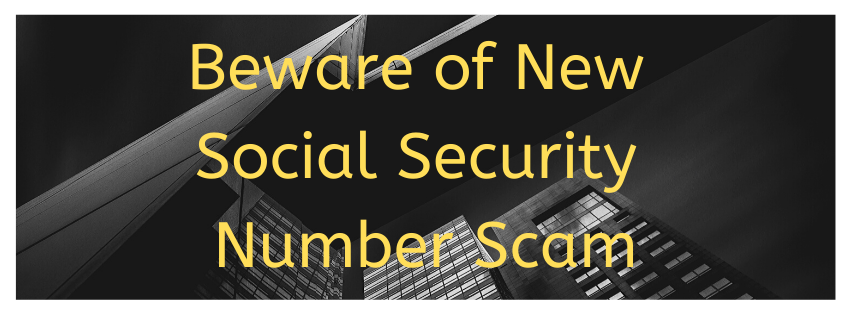According to the IRS, taxpayers should be on the lookout for a new type of social security number phone scam. Recently, con artists have been calling unsuspecting taxpayers and threatening to suspend or cancel their Social Security numbers, citing unpaid or overdue taxes. They then use the fear they have instilled to attempt to get payment or sensitive information out of the person on the other line. The IRS warns against providing any such information over the phone unless you are 100% positive that the caller is a legitimate source. Luckily, there are a few ways to tell if the call you’re receiving is a scammer.
The IRS and it’s four authorized private collections partners (CBE, Conserve, Performant, and Pioneer) stick to strict codes of conduct, and will never do any of the following:
• Demand payment immediately through a prepaid debit card, wire transfer, or gift card
• Ask you to make out a payment to any other payee besides the U.S. Treasury
• Threaten to bring in police officers or other local law enforcement to arrest you for non-payment
• Demand that you pay taxes without the ability to question the amount you owe or file an appeal
If you are called by someone claiming to be an employee of the IRS or any of its authorized partners, make sure to look out for certain signs that indicate they are lying. If they ask you for immediate payment by prepaid debit/gift card or wire transfer, threaten to have police arrest you, or demand you make payment to anyone other than the U.S. Treasury, they are a scammer.
So what should you do if you experience one of these spam calls? Simply hang up, the IRS says. Even if you are slightly unsure of the legitimacy of the caller, you should always hang up the phone to be safe. You can then report the call to any of the following:
• Treasury Inspector General for Tax Administration
• [email protected] (be sure to write “IRS Phone Scam” in the subject of the email and include the caller ID and callback information in the body of your message)
• The Federal Trade Commission
If you believe you do in fact have an overdue tax payment, you can check your status by viewing your tax account information at IRS.gov to see how much you owe and what payment options are available to you. You can also call the IRS at 800-829-1040 or phone the number on the billing notice you received.
While getting a phishing call can leave a bad taste in your mouth, staying informed on current swindles can help you recognize the signs and avoid falling into scammers’ traps. If you think you may be being targeted for a scam, hang up the phone and report the call to one of the above parties so that the IRS and its peers can properly investigate the caller and reduce the number of phishing operations that target unsuspecting taxpayers.
